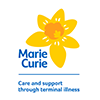What is the Green Deal?
The Green Deal is a government initiative designed to encourage business and home owners to adopt greener, more energy-effective technology. The owner is not required to pay any costs up front, but will eventually will pay back the cost through their energy bill. What makes the Green Deal different is that this energy bill will remain with the house or building, not following the owner, if they should move.
When it was first announced, it was billed as the largest home improvement project since World War II. However, latest figures show that only 219 homes currently have fully functioning Green Deal plans. This is after nearly 100,000 assessments had been made.
In light of these disappointing figures, the Department of Energy and Climate will , beginning in January 2014, attempt to simplify and streamline the assessment process, making it more accessible for the general public. This includes the implementation of a new online tool which will guide consumers more easily to websites marketing their various services. Several other incentives are being offered as well, such as eliminating the ceiling amount for business loans.
One of the BASIc tenets of the Green Deal, referred to as the Golden Rule, is that the expected financial savings should be equal to or greater than the cost of the upgrade. The ultimate goal of the program is to provide renewable energy to 26 million homes and 2.8 million commercial properties by the year 2030.
Streamlining The Application Process
The DECC is also looking at making the process more time-efficient, cutting down on the number of home visits required. There still seems to be a general perception, according to Strategic Development Minister Brian Smithers, that costs to upgrade to greener technology are still prohibitive, and that it will take considerable time and a greater awareness of the whole process before people begin to really get on board with this program. There have been numerous issues with people having trouble finding service providers in their area. All inspections must be done by a Green Deal accredited service provider, in order to ensure that the highest levels of efficiency are achieved.
In a similar vein, renewable energy resource company Low Carbon has announced that it will collaborate with Macquarie Capital to invest in a series of solar farms. This portfolio has the potential to provide over 100,000 homes per year with renewable energy. The first phase of the project will be based in Cornwall and in Wales, and will consist of three farms, with a total investment of 29 million Euros. According to Chief Investment Officer, John Cole, Low Carbon’s aim is to "provide an investment that will see those investors getting a return, as well as providing a renewable alternative to fossil fuels, making us a driving force in climate change." Initial construction of the farms is scheduled to begin shortly into the new year, with the completion and connection to be up and running by February 2014.
There are two main areas, referred to as measures, that encompass the Green Deal. The first is insulation and controls, such as lighting, and sealing doors and windows securely. The second part is power generation, employing means such as solar panels, heat pumps, and under-floor heating.
There are plans in place to make upgrading your home mandatory, possibly as early as April 2015. Therefore, the government is urging homeowners to get their upgrades done as soon as possible. The Green Deal Hub is a website which provides information on topics such as service providers, options, and a wealth of answers to all the frequently asked questions. It’s well worth checking out.







